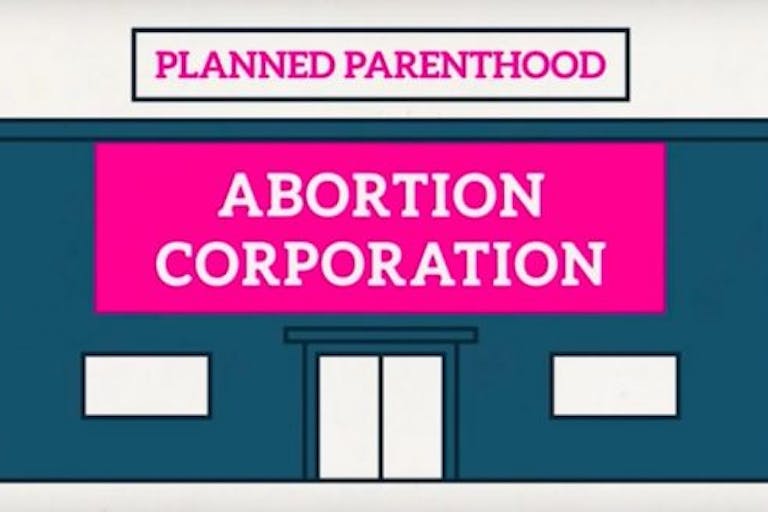
Mayday Health files countersuit against South Dakota over abortion pill ads
Bridget Sielicki
·
Secret Planned Parenthood training documents show how workers deal with women’s doubts
The pro-life group Feminists for Life recently published excerpts from a training program used by Planned Parenthood to teach employees how to talk to women coming for abortions. These training materials, created by Planned Parenthood and The Consortium of Abortion Providers, were used to instruct abortion workers on how to “counsel” women and answer their questions about abortion.
These documents were not meant to be seen by pro-life eyes.
In their instructions, Planned Parenthood tells workers to stress the following points when talking to women considering abortion:
Abortion is a common experience.
Women are not alone.
A range of emotions is normal.
Most women do fine.
A woman is assured that abortion is ordinary. She is told she will be fine afterwards and will not suffer emotional scars. However, there is ample evidence that abortion leads to higher rates of suicide and mental health problems. This study in The British Journal of Psychiatry shows that women who abort have an 81 percent higher chance of developing mental health issues.
Workers assure the woman she will have no post-abortion trauma, but at the same time they tell her that negative emotions are normal. Therefore, she is encouraged to ignore any feelings of ambivalence, guilt, or sadness that she experiences.
The training documents also include samples of common questions asked by women. These questions include:
What happens to the baby?
Will it hurt?
Does this make me a bad person?
Does this mean I will go to hell?
Will God forgive me?
“Is it a baby?”
In their instructions, Planned Parenthood acknowledges that women coming for abortions sometimes use the term “baby.” Carolyn Kasdorf, who had an abortion at Planned Parenthood as a teenager, recalls how the abortion worker answered her when she asked, “Is it a baby?”
Feeling I had nowhere to go, I turned to Planned Parenthood and ultimately chose abortion. At first, I struggled with the morality of the decision.
“Is it a baby?” I asked.
The counselor gave me all the answers. “No, it’s not a baby; it’s just cartilage like your ear. It’s a blob of tissue.”
Many women have similar stories. However, in a recent webcast, sponsored by And Then There Were None, an organization that reaches out to abortion facility workers, former Planned Parenthood director Abby Johnson says most women coming in for abortions now know they are pregnant with babies. You can listen to the full webcast here. Johnson explains how things have changed over the past ten years:
[O]ne of the things I really try to impart to the pro-life movement is that women are not having abortions because they don’t recognize that they’re pregnant with a baby. I can only think of one time in my eight years at Planned Parenthood when a woman came in talking about her pregnancy and didn’t call it a baby. I don’t think I ever heard a woman call her pregnancy a fetus. That’s what the opposition does. That’s what Planned Parenthood does. That’s what the media does. But these women – 60% of women who are having abortions, they’ve already had children. So we’re not dealing with a population of people who are ignorant to the fact that they’re pregnant with a baby.
READ: “Is it a baby?” Clinic workers respond
Johnson explains how more women know about fetal development, thanks to online resources:
You know back in the 80s and 90s when ultrasounds were, sort of, just coming around, yeah, that was a real eye-opening experience for women and in many cases it still is. But I think we’re dealing with a different generation of people because everything is online. Everything is at the push of a button. Everything’s on a smartphone. So we’re sort of dealing with a more educated – I don’t know better educated – I don’t know if that’s true – but a more educated population because they can Google anything and have information there at their fingertips.

Johnson explained how the narrative at Planned Parenthood changed due to new technology and the fact that more women coming in for abortions were already mothers:
So I think – and I remember in 2008 when we changed the narrative. Before at Planned Parenthood, it had been, oh it’s not a baby, it’s tissue, it’s just a blob of cells blah blah. But then we recognized that these women knew it was a baby. And they recognized that. And they had seen the ultrasounds, and they had had children. So that was when we changed all of our talking points, and that’s when we changed it to “Care. No matter what.” And we started telling women – the talking point was that women choose abortion because they care about themselves, their future families, and their current families. And so it turned abortion away from focusing on the baby and turned it more as a life decision. A positive life decision.
Planned Parenthood, Johnson says, tries to focus the woman on herself, her family, and her circumstances rather than her baby.
“Will God forgive me? Will I go to hell?”
Other questions are spiritual. Women ask if God will forgive them, and if they will go to hell for their abortions. They know, deep down, that they are doing something wrong.
On the webcast, former Planned Parenthood worker Annette Lancaster explained how answering, “Will God forgive me?” was one of the things that troubled her the most when working at Planned Parenthood. When someone asked her what led her to leave her job, she mentioned how uncomfortable she felt answering that question:
I think for me it was the fact of the lying to the women. I have labeled it as emotional manipulation. We were taught to teach these women… whenever they asked the question, “Is God going to forgive me?” “Well, what type of God do you serve? Do you think that God will forgive you?” It was answering a question with a question — never truly answering someone’s question. And for me that became very frustrating because I hate it when people do that to me. You ask a question and you never truly get an answer. You get another question back to you. But that was what we were taught to do to these women who came in.
Planned Parenthood’s response was to never answer the question directly. Instead, turn the question back and try to deflect it.
Workers hasten to assure the woman that her feelings of guilt and ambivalence are normal, and are not reasons why she shouldn’t get the abortion. This is seen in the training materials’ sample questions that women might ask. There are three responses given for each possible question, followed by the proper response for the worker-in-training.
Other questions
If a woman says, “I’m sorry. I know I need to put the gown on now, but I can’t stop crying,” one proposed answer is, “It sounds like you’re not clear about your decision. Let’s go back to the counseling room and talk about some of your other options.” While this may sound like a reasonable response, to Planned Parenthood, it is incorrect.
Instead, the worker is encouraged to say, “That’s OK, crying is totally normal,” and is then told to give the woman a little more time to collect herself or spend a few minutes reassuring her. But she will not be taken back to the counseling room. Further counseling at this stage would slow things down at the facility. The woman is expected to gain control of her emotions and go through with the abortion.
Another sample question: “My sister just lost her pregnancy, and here I am ending my pregnancy that’s probably perfectly healthy. I feel so bad. It doesn’t seem fair.” The three proposed responses are:
A: You don’t know for sure that your pregnancy is healthy. All you know is that it’s not right for you right now.
B: I’m sorry to hear about your sister’s loss. And I’m sorry for what you’re going through, too! Being a woman involves some hard choices sometimes.
C: Do you want me to have the doctor see a different patient first so we can get you some more counseling?
Can you guess which response is the one Planned Parenthood recommends?
It’s not C. Planned Parenthood doesn’t want the woman to get more counseling; workers want to keep women moving in an out of the procedure room. Instead, the correct answer, according to Planned Parenthood, is B. It sounds sympathetic, but at the same time does nothing to address the woman’s issues. The words may come across as comforting, but the worker is not actually helping the woman to work through her feelings. Instead, the worker’s words are meant to encourage her to go through with the abortion without addressing her actual concerns.

These leaked documents give insight into the way Planned Parenthood does business. They show how reluctant its workers are to give women extra counseling, because it could slow things down or make the woman change her mind. Either of these would be harmful to Planned Parenthood’s revenue stream.
Sources:
Serrin M Foster “What to Expect When You’re Expecting at Planned Parenthood” The American Feminist Fall/Winter 2016
Wendy Williams, Ann Caldwell Empty Arms: More Than 60 Life-Giving Stories of Hope from the Devastation of Abortion (Chattanooga, Tennessee: Living Ink Books, 2005) 98 – 100
Live Action News is pro-life news and commentary from a pro-life perspective.
Contact editor@liveaction.org for questions, corrections, or if you are seeking permission to reprint any Live Action News content.
Guest Articles: To submit a guest article to Live Action News, email editor@liveaction.org with an attached Word document of 800-1000 words. Please also attach any photos relevant to your submission if applicable. If your submission is accepted for publication, you will be notified within three weeks. Guest articles are not compensated (see our Open License Agreement). Thank you for your interest in Live Action News!

Bridget Sielicki
·
Investigative
Carole Novielli
·
Abortion Pill
Carole Novielli
·
Investigative
Carole Novielli
·
Investigative
Carole Novielli
·
Investigative
Nancy Flanders
·
Guest Column
Sarah Terzo
·
Abortion Pill
Sarah Terzo
·
Guest Column
Sarah Terzo
·
Guest Column
Sarah Terzo
·
Guest Column
Sarah Terzo
·